Check out below for Dale’s talk at the Organic Oklahoma Conference about how growing food changed our lives!
I’ve talked before about how my daughter’s birth inspired me to change my lifestyle and lose 120 pounds. This is the story about how I did it and why I developed a more sustainable approach to healthy living. I don’t know how I can tell the story of how I got here without sharing details of my life that I normally wouldn’t disclose so publicly. I only do so with the hope that my story helps someone else out.
Becoming a Father & Lighting the Spark
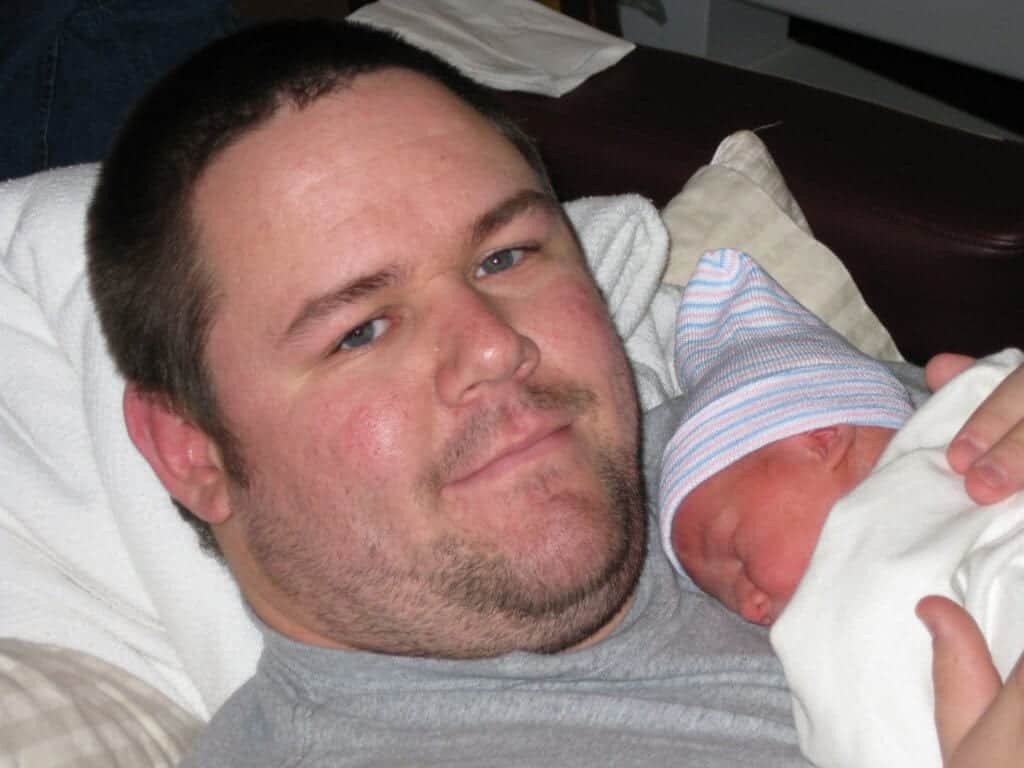
This all started for me back in the end of 2008. I was around 330 pounds when Brooklyn came into this world. Up until then, I battled constant health problems, anxiety attacks, and bouts of depression. If I continued down the unhealthy path I was on, I knew I wouldn’t be able to be the kind of dad I wanted to be – the kind of dad who is able to run with his kids, coach their sports teams, and be there for them when they’re older – so I decided I had to change. I started by targeting my worst vice: soda. I’ve had a problem with soda ever since I can remember. I drank between 2 and 3 liters of soda a day back then and I now know it was one of the leading reasons I got so large (340 pounds at my heaviest). I knew it had to be the first thing I cut out. It’s been 8 years since then, but I still remember this being the hardest part for me. It didn’t help matters that the office I worked in had a soda machine with free, unlimited access. Over the course of 2 months, I weaned off of my daily 3 liters to only drinking water with an occasional tea. I started by cutting back to just 2 sodas a day. Then once I got used to that, I cut back to 1 a day, then 1 every 2 days, and eventually I got to the point where I completely eliminated it.
Once I’d defeated my soda addiction, I felt like I could do anything. Soda had been a crutch for me for my entire life, and jumping that first hurdle gave me the confidence to tackle the next one: food. My typical diet in the past involved at least two fast food meals a day, every single day. Looking back now, it’s no wonder I had to have my gallbladder removed at the age of 24!
As I tend to do from time to time, I went a little overboard with this project, so I had spreadsheets galore. Back then, I viewed weight loss as a simple math problem: There are roughly 3,500 calories in a pound, and I wanted to lose 10 pounds a month. This meant I had to burn a little over 1,000 more calories than I ate each day. To accomplish this, I turned to data and spreadsheets. I purchased a Bodybugg device that I wore on my arm, and it monitored how many calories I burned. I then used one of the food-logging mobile apps to keep track of everything I ate throughout the day, and I religiously stuck to my calorie-burning goal.
Becoming a Fitness Junkie
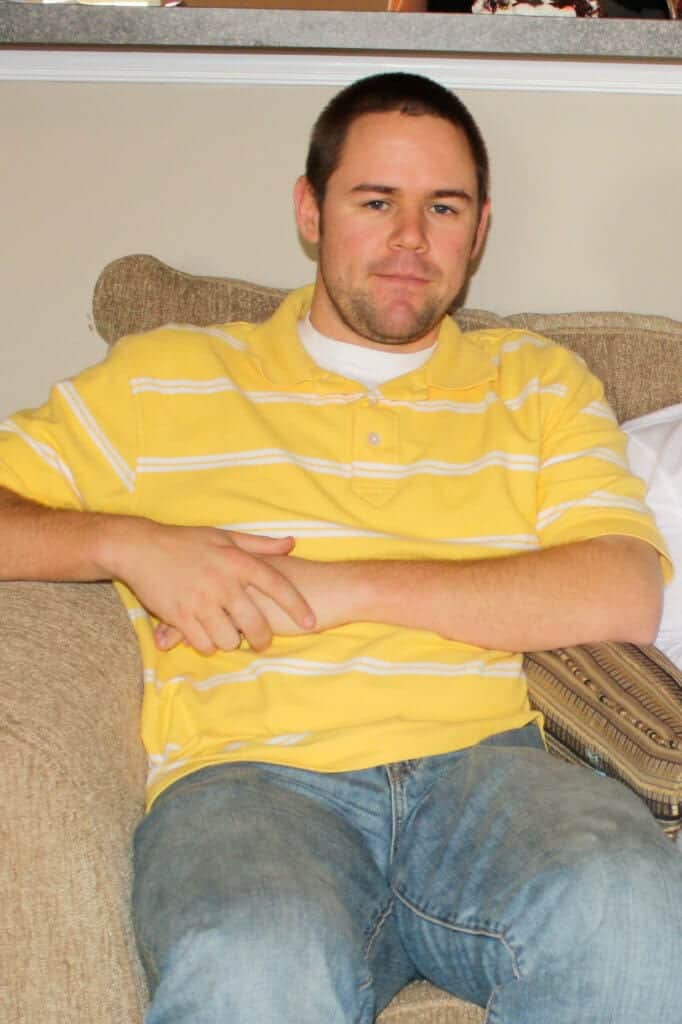
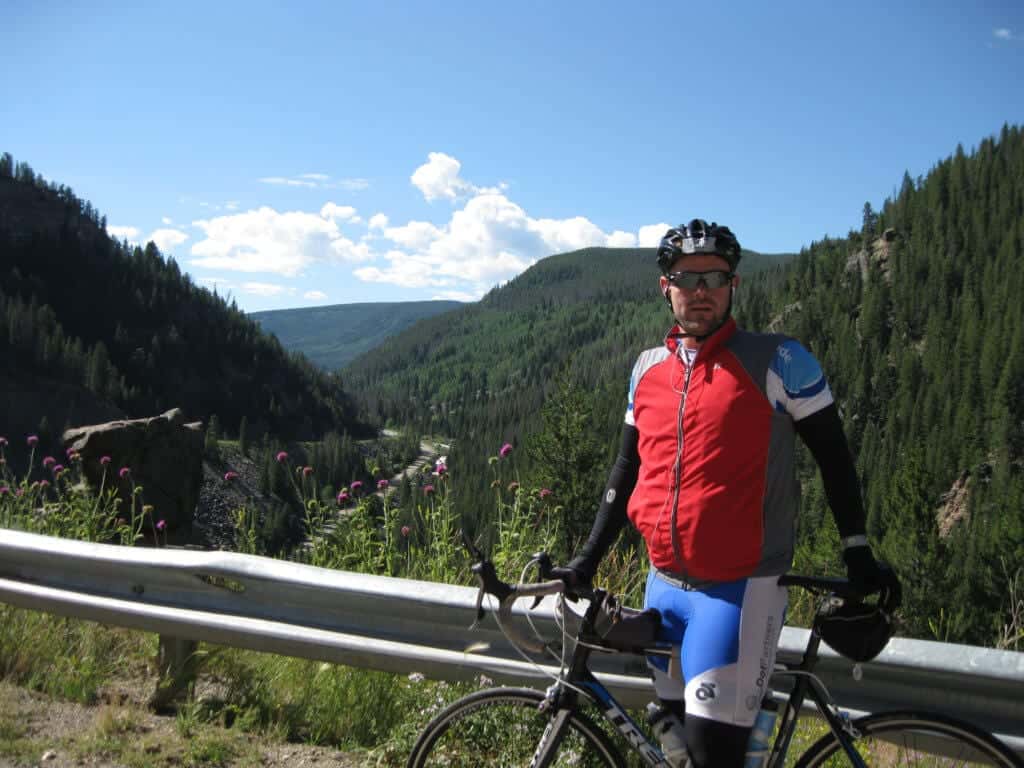
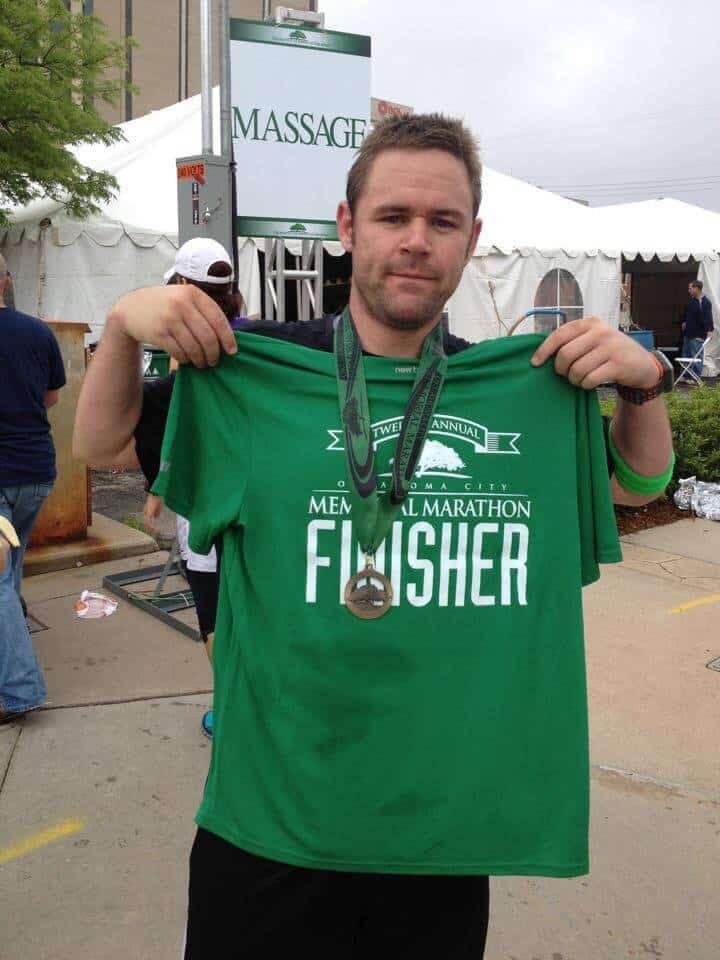
Looking back, I now realize I made a couple of mistakes. First, I only cared about the calorie content of foods. I hadn’t yet discovered why the quality of the food matters. I thought that eating low-calorie meant that I was eating healthy, but I should’ve paid more attention to the source of the calories. Secondly, juggling all of the spreadsheets, meal logging, and data tracking made impossible to sustain. It became a pain to calculate every meal I ate so I started sticking to things that I could easily calculate calories for. As a result, I pretty much ate the same things every day. I had a bowl of cereal and a banana for breakfast every day, a turkey sandwich and an apple for lunch, and for dinner, I alternated between 5 or 6 meals that I’d calculated the calories for. I didn’t care much about where the food came from; I only cared about how many calories it contained. Although it worked and I lost weight, I eventually stopped keeping track of everything and fell back into old habits. I now know that this method was misguided, and I can expand on that later.
I mentioned above that I burned between 3500-4000 calories a day and that’s where the next part comes in. At the size I was back then, I generally burned 2500-3000 calories a day just doing normal daily activities. To burn the rest of it I started with something simple: taking 15-30 minute walks around the building at my office twice a day and walking at least 3 miles every night. I walked at a nearby park, and every single night, there was this old man – He had to have been at least 75! – who would always jog past me. I wish I could find him and thank him because getting passed by him every night motivated me to start running. I’d never purposely run for longer than a few minutes in my life and the idea of running even a mile seemed impossible. I discovered the Couch to 5k (C25K) running program and started with it. The C25K program teaches you how to run by introducing you slowly through walk/run intervals. You start by alternating walking/running every 90 seconds for 20 minutes. As the weeks go on, you’re running more and walking less until eventually, you’re just running. I still remember the first time I was able to run a mile without stopping. I felt like I’d just climbed Mt. Everest. By this point, it was the fall of 2009 and I’d lost over 60 pounds. That September I participated in my first 5k run and running began to consume my life. In 2010, I reached my low weight of 210, ran my first half marathon and followed up with countless more half-marathons and 2 full marathons in 2011 and 2012. I also got heavily involved in cycling and rode my bike thousands of miles over Oklahoma and Colorado. By the end of 2010, I was completely self-absorbed, obsessed with endurance training, and had lost sight of why I’d started all of this in the first place.
Crashing Into a Major Depression
I started this journey because I wanted to be a better father, but I was spending all of my time training for marathons and bicycle events, missing out on precious memories with my then 2 daughters (Daphney born in 2010). I’d let something that initially began as a good thing consume me and become a negative thing in my life. As I’ve since learned, the problem with searching for happiness through personal achievements is that they never quite satisfied me. I mean, just look at this picture I saw pop up on my Facebook memories the other day. This was taken immediately after completing my 2nd marathon. You’d think I would have been happy about it, but I couldn’t care less. Goals that were egocentric in nature could only sustain me for so long. This was also around the time that I was included on an episode of the Rachel Ray show featuring people from Oklahoma that had lost weight as part of the “Million Pound Challenge”, and I also received the largest promotion of my career. There’s a line from an Avett Brothers song that I feel perfectly describes me during his time: “I was lost as lost could be, being praised for being found. But all that praise got lost on me, as the mood swings headed down.” I’d let all the attention and weight loss success get to my head and I was about to be taught a lesson.
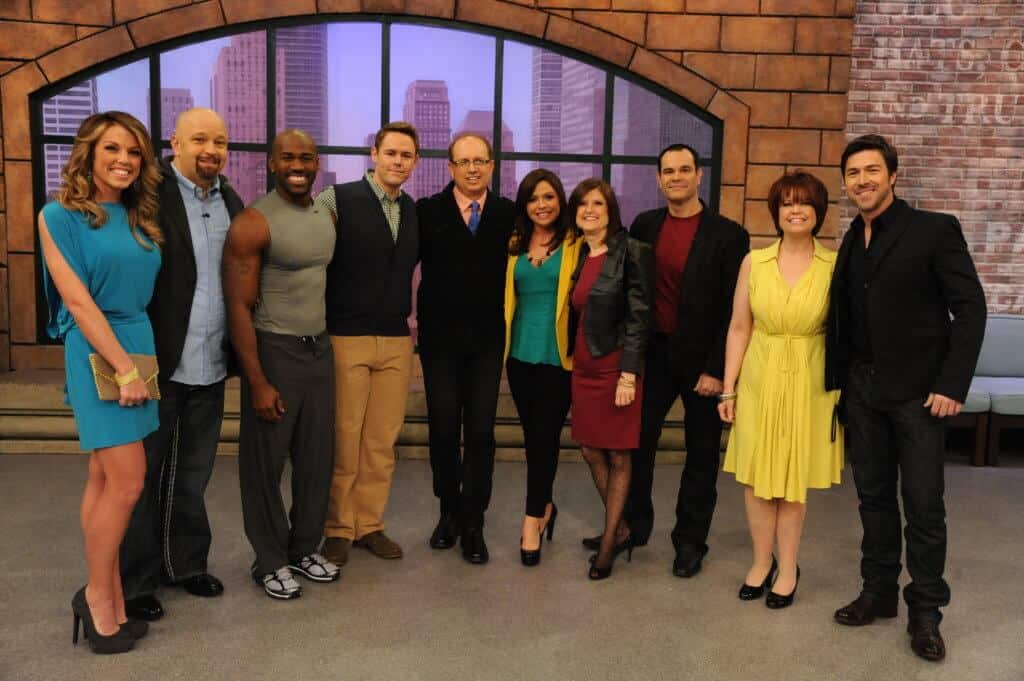
By the middle of 2012, everything came crashing down. I was in the best shape of my life, but I spent a lot of time away from my family either working, running, or cycling and no matter how far I ran, the anxiety/depression was still there with me. I ended up going down a dark road. My dad passed away, I lost my marriage, lost half the time with my kids, and basically lost myself. I’d spent my entire career up to that point in the pursuit of money thinking I was doing the right thing for my kids. Now it all seemed rather pointless as I sat in my brand new house surrounded by all this “stuff” alone on the nights my kids were with their mom. There’s about a year and a half of my life where I just flat out wasn’t myself and frankly, I don’t remember much of. I was in the midst of a deep depression and had no clue I even had a problem. My health stopped being a priority and I slipped back into many of my old habits. I slowly started to gain the weight back, and before it was all said and done, I ended up gaining back 50 of the 120 I’d lost.
Then I met Carrie, and everything changed…
Finding Love & Fighting Back Against Depression
Carrie and I met the 4th day of 2013 and it was an instant connection unlike anything I’d ever experienced. I haven’t been the same since. I’ve never met anyone who makes me feel the way that she does. She’s the most compassionate and loving person I’ve ever known and her kindness and gentleness continually inspires me to be a better person. I’m thankful every day that I met her and I’d go through all the hells I’ve been through 100 times over to get to her again.

She’s also the first person in my life that helped me begin to understand that I had anxiety and depression. I realize now that I’ve always fought anxiety and depression, but I didn’t admit it to myself or anyone else until I met her. There was one specific night early in our relationship that changed my life. I’d been a jerk to her for no reason and tried to blame it on something else. The truth is I was in the midst of an anxiety attack and was lashing out as a response. This ended up being a seismic moment in my life that fundamentally altered the way I viewed the world. She quickly put me in my place and was the first person in my life that ever forced me to admit I had a problem. That realization/admission inspired me to fervently research anxiety, depression, and how it can be treated or prevented without medication. My first step was to read The Depression Cure. It talks about how anxiety and depression can be prevented or treated with simple things like getting more sunlight, drinking lots of water, eating the right foods, not dwelling on negative thoughts, getting enough social activity, and building consistent sleeping habits. They’re all very simple ideas, but I’ve found them to be incredibly powerful. It’s these principles that still guide me today. All of the things I learned in the book led me to believe the reason for my increasing anxiety was directly related to what I was eating and how I was living. I decided to take the lessons of the book to heart and to live as closely as I could to the recommended lifestyle for preventing anxiety and depression. I had, however, learned a lesson from my previous experience; I wanted to be healthy, but I wasn’t going to let the pursuit take over my life again.
Learning to Love & Growing Food for the First Time

Carrie and I had a magical 2013 that culminated in me asking her to marry me. On stage. Dressed as Superman (she REALLY likes Superman). In 2014 we were married and soon expecting our first child, Marianne. By then I had started to see some success in battling anxiety and depression by following the advice I’d learned in the book, but we quickly learned that eating locally grown organic fresh fruits and vegetables is expensive! We were also juicing a lot of fruits and veggies so our grocery bill was well over $100 a week in just juicing materials. I knew there had to be a better way and that’s what led us to start thinking about starting a garden. However, the house we lived in didn’t have a large enough yard so we knew we’d have to wait until we were able to move.
We bought our house in spring of 2015 and that’s basically when the story of our garden began. We wanted to save money and started our first two raised beds as an experiment to see if we could cut our costs. I knew starting out that gardening would help accomplish two of the lifestyle changes I wanted (getting more sunlight and eating better food), but I was pleasantly surprised to find that it actually contributed to success in other areas, as well. Being outside in the sun working in the garden makes me want to drink more water, and I also sleep much better now that I spend at least an hour in the garden every day.
We bought our house in spring of 2015 and that’s basically when the story of our garden began. We wanted to save money and started our first two raised beds as an experiment to see if we could cut our costs. I knew starting out that gardening would help accomplish two of the lifestyle changes I wanted (getting more sunlight and eating better food), but I was pleasantly surprised to find that it actually contributed to success in other areas, as well. Being outside in the sun working in the garden makes me want to drink more water, and I also sleep much better now that I spend at least an hour in the garden every day.


Tasting spinach raw out of the garden for the first time opened my eyes to a new world. It tasted unlike any salad green I’d ever had. And in that moment, I had a realization: with the added taste came the added nutritional benefits as well. This was the first time I personally experienced all the things I’d seen in movies like Food Inc. and read about in Michael Pollan books.
Every other thing we’ve grown since has had the same result. It tastes dramatically better than anything you can buy in the store. This brings me back to that colossal mistake I made the first time around: only paying attention to the calories, not the nutritional value. In the past, I only focused on how many calories food had and didn’t care about where it came from. What I’ve learned since is that the source of the calories makes a huge difference in how I feel, especially mentally. And honestly, I don’t even count calories anymore.
I basically just try and stick to a diet of rice, beans, fish, chicken, eggs, homemade breads, nuts, smoothies, fruits, and anything that is available from the garden. I’m not as strict as I used to be though. These rules are what I go by when I eat at home but still have other things when I go out to a restaurant. However, we only go out once or twice a month. I do my best to completely avoid soda and have been able to pretty much eliminate it with carbonated water with lime and lemon squeezed in. My brain thinks I’m drinking sprite whenever I drink that and I’m content. We bought a sodastream for our house so we can make them at home as well!
Learning to be Mindful
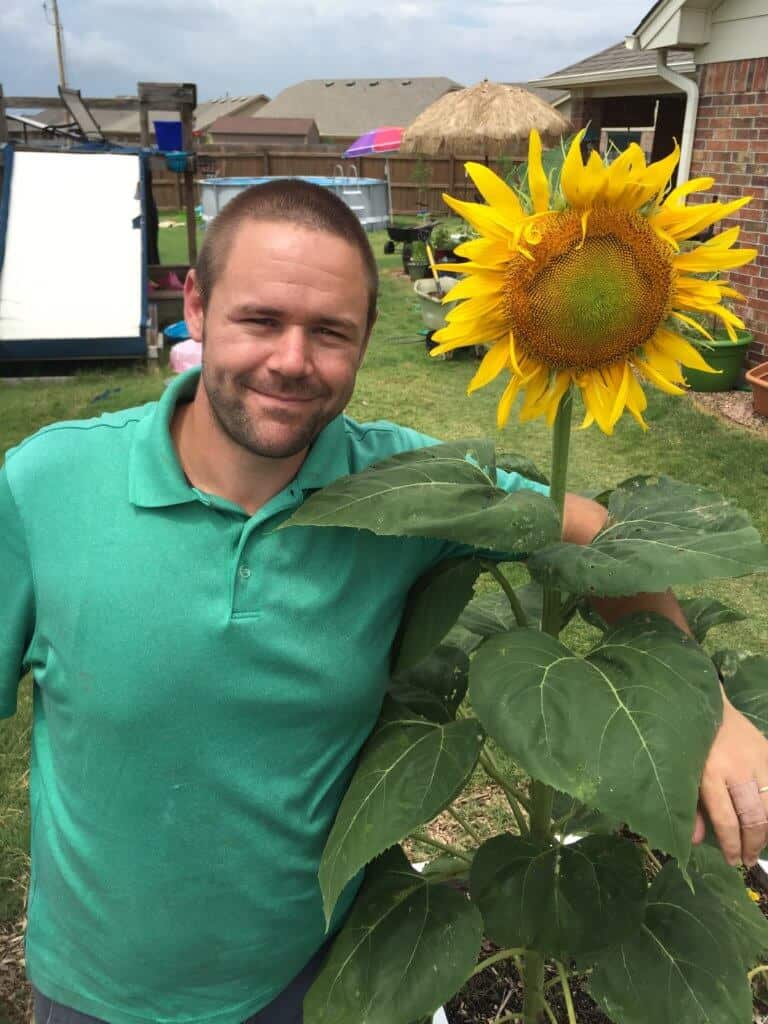
My running shoes and road bike are all but retired at this point. I’ve tried picking up the hobbies again a few times but they didn’t stick. Running just doesn’t give me the feeling it used to and I’ve seen too many of my friends get hit by cars out on their bikes. I do miss cycling, but I just can’t justify the risk knowing that I have 4 little kids that depend on me. Besides, I get more than enough exercise out in the garden. Between turning compost piles, digging out Bermuda grass, unloading truckloads of wood chips every week, building raised beds, and everything else that comes with gardening, it’s one heck of a workout. Plus, it’s more of a full body workout than anything I’ve done in the past. After a few years of living the life of an urban farmer, I’ve never felt stronger.
But out of everything, the change that’s helped my anxiety the most has been the pursuit of being more mindful. I’ve always had a bad habit of letting my worries spin out of control. What I’ve learned is that by focusing my thoughts on the present moment, I’m able to avoid a large part of the anxiety. There are two forms of anxiety that I struggle with: mental and physical (panic attacks). I’ll start with mental anxiety because this is where I’ve made the most progress. For most of my life, anxiety started in my head. I constantly worried about things that were mostly out of my control. My mind does an incredible job of identifying risks and worry can snowball into a full-blown panic attack in no time.
Now I make a concerted effort to control my thoughts. Whenever my mind wanders off where it shouldn’t be, I bring it back to “here and now” and focus on what I’m doing or what’s around me at that moment. This practice of mindfulness has been one of the keys in my fight against anxiety. I wrote a story about how Carrie and I lost our unborn child in 2016 and how I almost lost her that relates to this. I still struggle with keeping my mind from wandering into the future from time to time, but for the most part, I’ve had a lot of success on this front. This is another area where Carrie has been a rock for me. She helps me out and reminds me to keep my thoughts in check. Honestly, she’s the main reason I’m where I am today.
Managing Panic Attacks
Unfortunately, physical anxiety is a completely different beast. My mind can be completely at ease whenever a panic attack hits. It usually starts with a sudden rush of heat across my body. Soon after, my heart begins to race and I have trouble breathing and everything starts to spin. Sometimes I lose all control of my emotions and I just start crying (even if I’m not sad about anything). It’s a terrifying experience because on the inside it feels like what I can only imagine a heart attack feels like. Sometimes it goes away after a few minutes and other times it lasts for hours.
I’d love to be able to say I’ve conquered this as well, but I was reminded a few months back how easily they can come back if I fall off the wagon. I didn’t have any panic attacks for nearly a year after turning the corner in my fight with controlling my thoughts and I thought panic attacks were long behind me. Unfortunately, I’ve learned that anxiety doesn’t always come from my mind. Each time I’ve had a re-occurrence of panic attacks, it’s been due to one of the following reasons:
- Not eating the right foods
- Not drinking enough water
- Not getting enough exercise
- Not getting outside enough
- Not getting enough social activity
- Drinking too much alcohol
- Staying up coding late too many nights in a row
Which is where the garden comes back in again. I’ve found the garden to be critical to my success in avoiding panic attacks and depressions.There’s something magical about working outside in the dirt that calms me down. Because of gardening, I eat super healthy, fresh, organic food nearly year round and also get daily exercise using all different parts of my body. Also, working out in the garden usually makes me thirsty and I drink a lot more water as a result. I’m also able to use my anxiety as a tool in the garden. Whenever I do feel anxious, I walk outside and do something physical in the garden using that anxiety as fuel. By redirecting anxiety into work in the garden, I was able to build our urban organic backyard farm in less than 2 years!
So I guess that brings us to now. Thank you for taking the time to read this, especially since you’ve stuck around this long! I still have a long way to go, but I hope that sharing what I’ve learned so far helps someone else out there. If you’re someone that suffers from anxiety, panic attacks, or depression, please understand YOU’RE NOT ALONE! There are millions of people out there just like us that deal with all of these types of issues. I’ve had a lot of success in following the simple ideas I’ve talked about above and I hope it helps you out in some way. I’m passionate about sharing what I’ve learned and helping others overcome anxiety and depression. Please help me by sharing this with anyone you know that might benefit from hearing this.
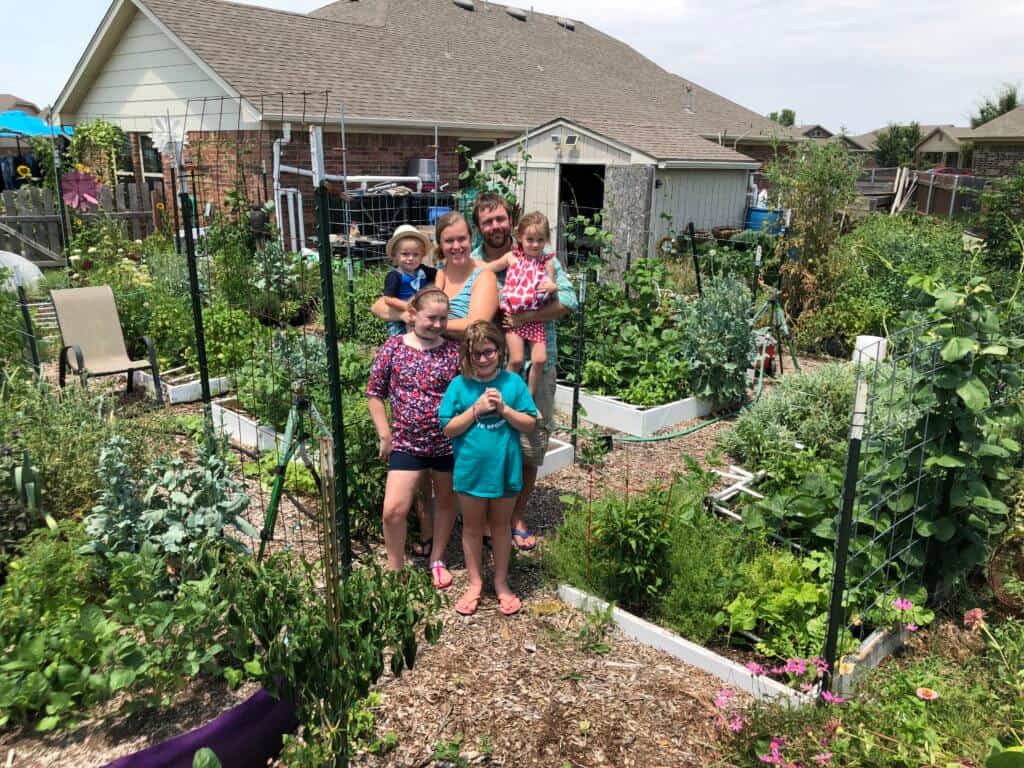
Check out below for Dale’s talk at the Organic Oklahoma Conference about how growing food changed our lives!
Dale Spoonemore is the visionary co-founder of “From Seed to Spoon,” a groundbreaking platform that has revolutionized the way individuals approach gardening. His journey from a novice gardener to a leading advocate for sustainable living and mental wellness through gardening is a source of inspiration to many. Dale’s personal transformation and dedication to making gardening accessible and enjoyable have propelled “From Seed to Spoon” to become a vital tool for gardeners of all skill levels.
Dale’s venture into gardening began as a personal quest to improve his family’s health and well-being. Faced with the challenges of learning how to garden without prior experience, Dale turned his journey into an opportunity to simplify gardening for others. He leveraged his background in technology to develop the “From Seed to Spoon” app, which guides users through the process of starting their own gardens with ease. The app covers everything from selecting the right plants for your region to tracking your garden’s progress.
Beyond the app, Dale’s contributions to the blog reflect his deep understanding of gardening, his commitment to organic practices, and his belief in the therapeutic benefits of connecting with nature. His posts are rich with practical advice, personal anecdotes, and a clear vision for a healthier world through gardening. Dale often shares innovative gardening techniques, ways to incorporate technology into gardening, and tips for growing a wide variety of plants.
Dale’s passion for gardening is matched by his advocacy for mental health. He openly discusses how gardening has been a crucial part of his own mental health journey, offering a powerful testament to the restorative and calming effects of nurturing plants. Through his work, Dale aims to inspire others to discover gardening as a pathway to physical and mental health, sustainability, and a deeper connection with the environment.
As a key voice on the seedtospoon.net blog, Dale Spoonemore continues to educate, inspire, and empower individuals around the globe to start their own gardening adventures. His story is not just about planting seeds in the ground; it’s about planting seeds of change in communities, encouraging a shift towards more sustainable living practices, and fostering a global movement of wellness through gardening.
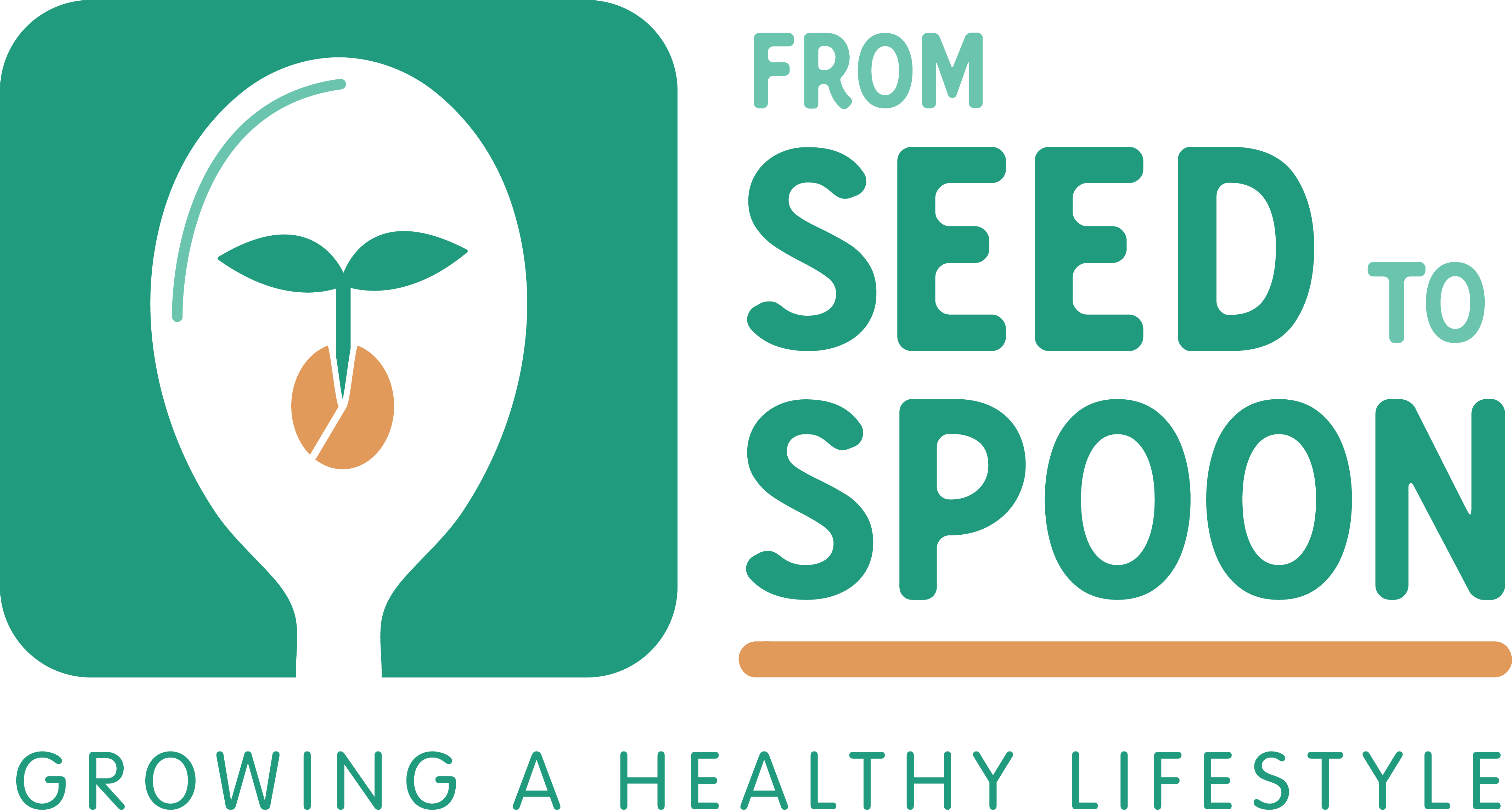
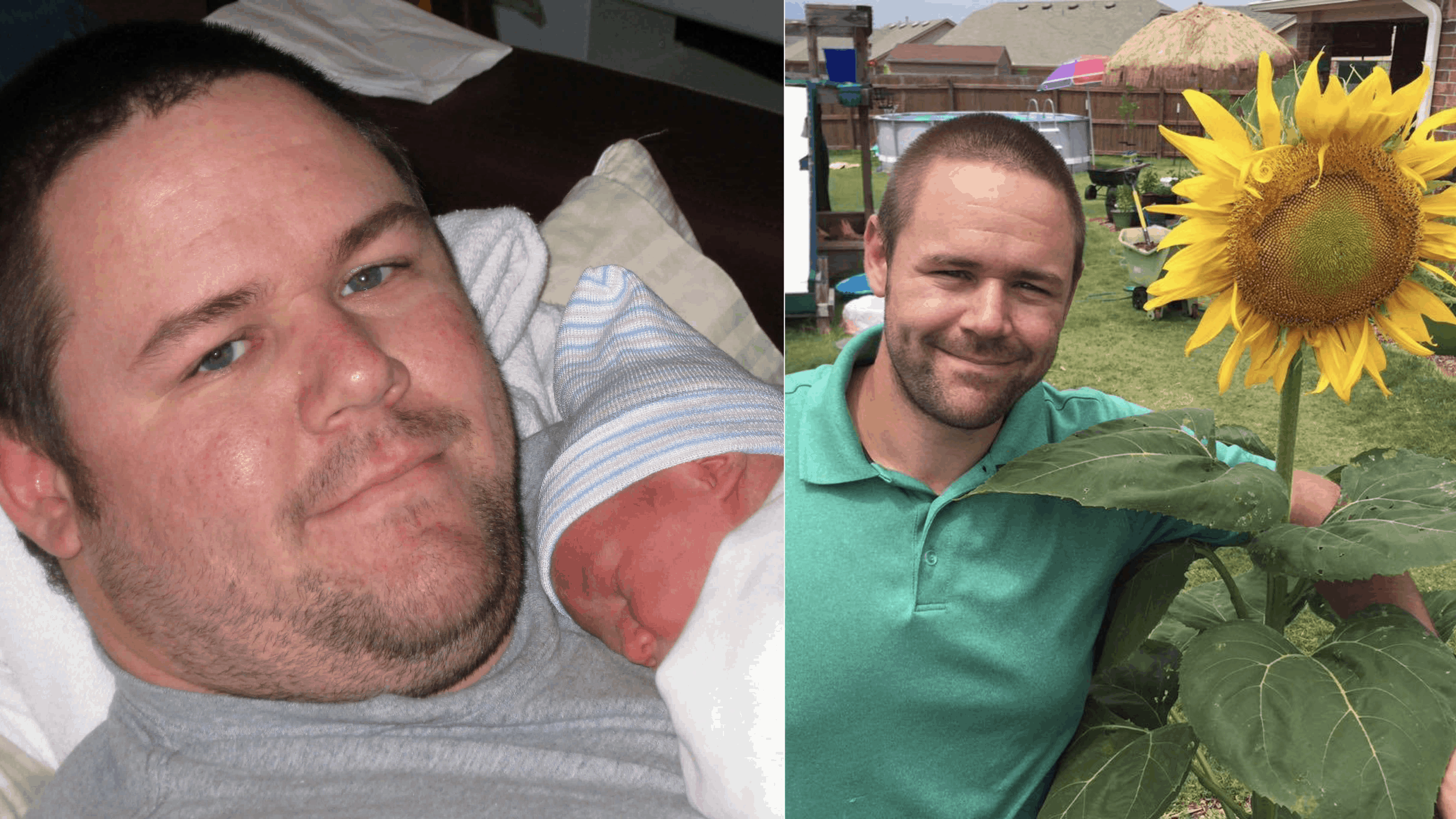

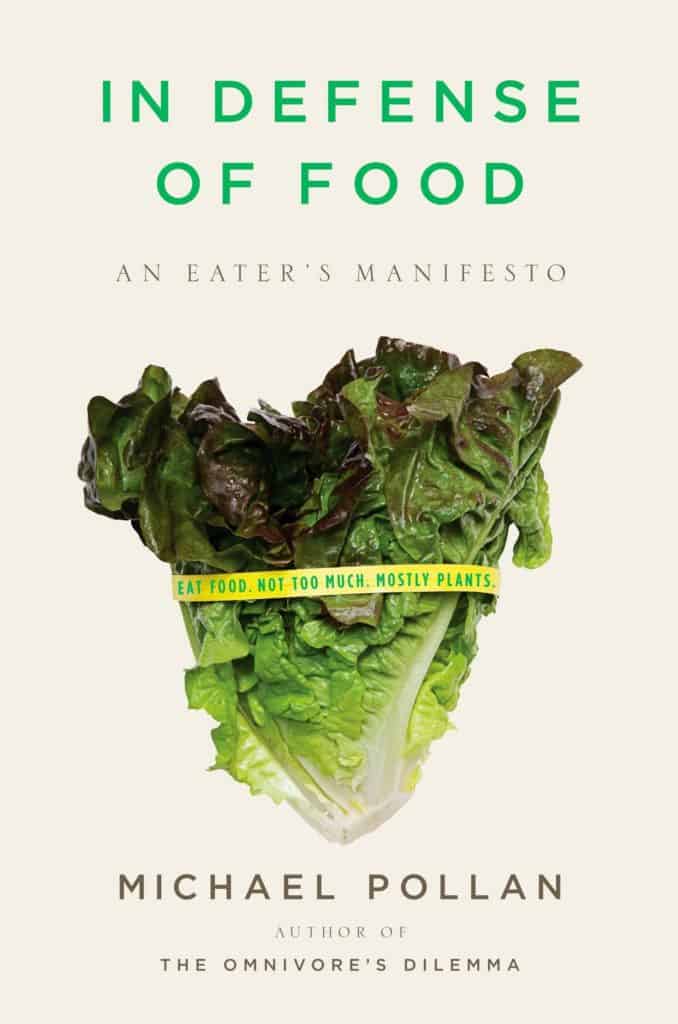

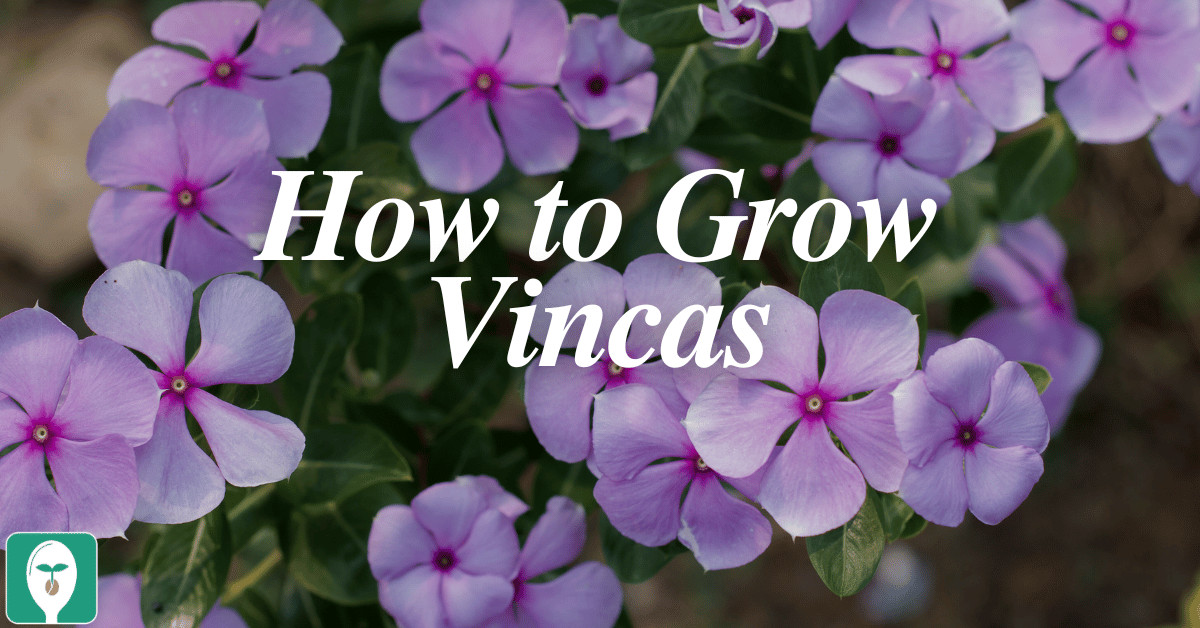
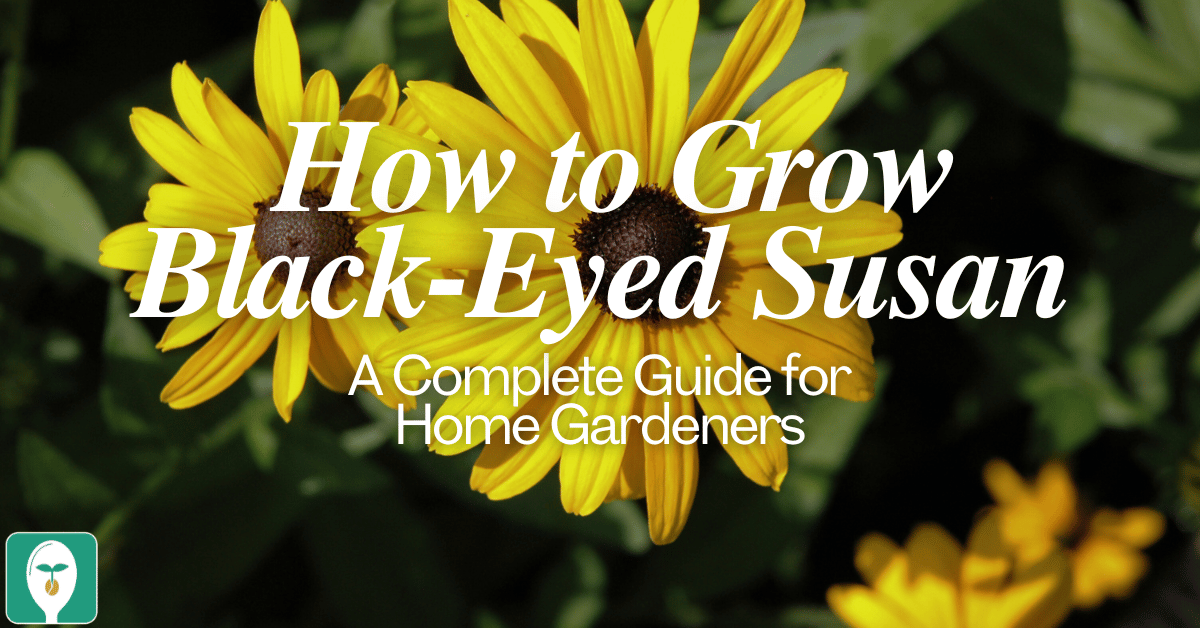


16 thoughts on “Dale’s Story: How My Battle With Weight Loss, Anxiety & Depression Led to Finding Love & Growing Food!”
I love your story. I am also a worrier and let my mind take over sometimes
Thank you so much for sharing. Ongoing debilitating depression was the first disease I eradicated when I changed my diet. And it’s the first symptom that reoccur when I cheat or accidentally get exposed. Nightshade are one of the worst for me.
Thank you so much for sharing this! I feel like I am just a few steps behind you on the recovery and its good to be reminded that the small, simple things and routines do matter and are seriously so key to keeping yourself feeling good. I also love that you wrote “There’s about a year and a half of my life where I just flat out wasn’t myself and frankly, I don’t remember much of. I was in the midst of a deep depression and had no clue I even had a problem.”– now that I am coming out of that dark place, as I look at it in retrospect I cannot believe the time I wasted, where did those months go? How did I not notice something was so wrong sooner? I don’t even know the person I was for that time– and I have been beating myself up about it. Do you ever do that? Is there anything you tell yourself to feel better about that missed time? I guess, how did/do you work to forgive yourself?
Anxiety is a problem I too struggle with in recent years. Mine comes on in the form of a stinging sensation over my skin, even to the point of pain. I have yet to talk to anyone about it as I don’t want to be slapped with some cure all drug…not my answer. I have noticed mine gets bad when I eat sugar. Also too long at a screen, usually a computer, will set it off. Add the noise of the children and it gets bad.
Thank you for sharing your journey and your ideas to help. I gleaned lots of ideas from your post.
Thank you for sharing your human and inspiring story.Keep eating from the garden, and don’t forget
to change it up enough so you don’t get bored.you are a great example for your kids, and what a great way for them to grow up! I’ve seen them munch on fresh greens like they are great.Eating against the cultural grain of our society isn’t always easy, but what a great gift to you and your family.
Congratulations Dale. It’s been a long road for you, but you really are conquering your fears. Keep it up.
Thank you for taking the time to read and leave a comment, Arlene!
Just wanted to say I too can identify with what you’re experiencing, and I still harbor some regret for how my family was negatively impacted and time/memories we could have had together. But let me ask you this: how does beating yourself up help? Does anyone benefit from it? Is anything in your life better due to negative self-talk? Ironically, opposite behaviors will make a tremendous positive impact on many areas of your life. If roles were reversed, would you forgive someone you love for not being emotionally available during their battle with depression? Chances are your family forgives you and wants you to do the same. Forgiveness allows you to let go of the past and move on so you can enjoy the present moments of your life and make memories that you will be able to reflect on and cherish in the future. So when you start to feel bad about yourself for the past, try to focus on what you can think and do instead that will help you feel better about yourself now and in the future. Depression and anxiety are not your fault but you have the power to overcome! Choose to focus on now & think good thoughts the way you’d want your loved ones to do for themselves. Give yourself credit for Being Human, recognizing the problem and moving on so you can enjoy your life and relationships the way you deserve to!
Thank you so much for writing this and telling your story. I suffer from anxiety in both the ways that you described as well as being obese. I am just beginning my garden this year, learning from your videos, and am learning all that I can about how I can combat both obesity and anxiety by working in the garden! Thank you for all that you do and please know that it helps so many!